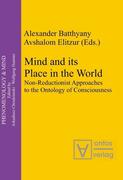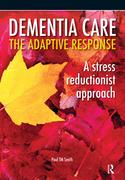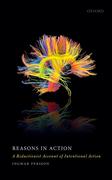32 Results for : reductionist
-

Combatants in African Conflicts (eBook, PDF)
This book focuses on the different types of combatants in conflicts in Africa, exploring the fine lines between what might be classified as a militia in one conflict, a rebel in another, or a terrorist in a third. Drawing on the work of Carl von Clausewitz, this book provides a conceptually stable and analytically sound new typology on combatants. Analysing the relationships between state and society, and drawing on Clausewitz's Trinity of passion, chance, and reason, the book presents a set of five types of armed actors: Professionals, Praetorians, Militias, Insurgents, and Mercenaries. Each type is developed through a close reading of foundational theoretical texts, reviews of contemporary studies, and a historical analysis of their unique characteristics. Unlike a reductionist binary perspective, this typology accounts for the dynamic, complex, and evolving relationships of these actors with the state and society. A typology of combatants in conflicts in Africa can provide avenues for more in-depth analysis of such conflicts and holds implications for Security Sector Reform projects and other peace-building programmes. As such, this book will be an essential reference for scholars and students of African Politics and Military and Security Studies.- Shop: buecher
- Price: 32.95 EUR excl. shipping
-

Combatants in African Conflicts (eBook, ePUB)
This book focuses on the different types of combatants in conflicts in Africa, exploring the fine lines between what might be classified as a militia in one conflict, a rebel in another, or a terrorist in a third. Drawing on the work of Carl von Clausewitz, this book provides a conceptually stable and analytically sound new typology on combatants. Analysing the relationships between state and society, and drawing on Clausewitz's Trinity of passion, chance, and reason, the book presents a set of five types of armed actors: Professionals, Praetorians, Militias, Insurgents, and Mercenaries. Each type is developed through a close reading of foundational theoretical texts, reviews of contemporary studies, and a historical analysis of their unique characteristics. Unlike a reductionist binary perspective, this typology accounts for the dynamic, complex, and evolving relationships of these actors with the state and society. A typology of combatants in conflicts in Africa can provide avenues for more in-depth analysis of such conflicts and holds implications for Security Sector Reform projects and other peace-building programmes. As such, this book will be an essential reference for scholars and students of African Politics and Military and Security Studies.- Shop: buecher
- Price: 32.95 EUR excl. shipping
-

The Shopping Addiction [2nd Edition]: A Cure for Compulsive Shopping and Spending to Free Yourself from Addiction! , Hörbuch, Digital, ungekürzt, 58min
Shopping is a raging phenomenon among developed countries and has been studied over and over. Sociologists say it's a female drive in an attempt to explain the differences in shopping behavior between men and women. It was said that the same obsession of men over sports can be linked to the way women go crazy on Black Friday sales or on mall openings. In the evolution of man, the male species are known to be hunters while women have always been the gatherers or the ones who are in charge of finding things for their offspring. It is quite a reductionist perspective and is still widely debated, but one thing's for sure: shopping will keep women enchanted for years to come. This behavior is not exactly exclusive to women though, because when you consider the purchase of gadgets, large screen TV, and high-end cars, the tendency of men to make expensive purchases is surely noticeable. However, this is limited to a targeted section of the market. Women, on the other hand, will shop whenever, wherever, and whatever! This is because men consider shopping as merely a purchase of specific merchandise, while for women, it's a whole different world altogether. It's hard to not love shopping. The glitz, glamour, scents of a newly minted shopping mall, the vibrant colors, the excitement, the friends you meet along the way, the giddy feeling of being able to all the fabulous things that money can buy - all of these are hard to resist! But when does shopping stop being a charm and starts haunting you like a curse? Where do you draw the line between recreation and obsession? ungekürzt. Language: English. Narrator: Millian Quinteros. Audio sample: https://samples.audible.de/bk/acx0/032141/bk_acx0_032141_sample.mp3. Digital audiobook in aax.- Shop: Audible
- Price: 9.95 EUR excl. shipping
-

Maxima Moralia (eBook, ePUB)
This book highlights the problem of one-dimensional, reductionistic life of the modern individual. An expression of crisis in our world, it discusses the imperative need to have a more comprehensive, non-reductionist life where the Other is incorporated, especially the relationship between the Other and the Self, based on virtues like love, empathy, equality, and compassion. The volume sheds light on how the world has forgone the art of living for a mutilated sense of well-being, the rise of conformity and complacency in human thought, and the lack of democratic dissent and citizenry responsibility in our contemporary societies, which is now characterized by mass immaturity, propelled by a process of thoughtlessness. It discusses how humans need to be aware of the life they lead, to think about Otherness of the Other not just as another virtue but also as a crucial element in the survival of humanity, for people to coexist with the world around them as equals. Furthermore, it advocates meaningful and thoughtful existence, in touch with the Nature we coexist with, to ensure that humanity is not robbed of its noble spirit as we live to survive in our techno-capitalist societies. An introspective read, this book will be of great interest to scholars and researchers of moral and ethical philosophy, political philosophy, and political science.- Shop: buecher
- Price: 14.95 EUR excl. shipping
-

Maxima Moralia (eBook, PDF)
This book highlights the problem of one-dimensional, reductionistic life of the modern individual. An expression of crisis in our world, it discusses the imperative need to have a more comprehensive, non-reductionist life where the Other is incorporated, especially the relationship between the Other and the Self, based on virtues like love, empathy, equality, and compassion. The volume sheds light on how the world has forgone the art of living for a mutilated sense of well-being, the rise of conformity and complacency in human thought, and the lack of democratic dissent and citizenry responsibility in our contemporary societies, which is now characterized by mass immaturity, propelled by a process of thoughtlessness. It discusses how humans need to be aware of the life they lead, to think about Otherness of the Other not just as another virtue but also as a crucial element in the survival of humanity, for people to coexist with the world around them as equals. Furthermore, it advocates meaningful and thoughtful existence, in touch with the Nature we coexist with, to ensure that humanity is not robbed of its noble spirit as we live to survive in our techno-capitalist societies. An introspective read, this book will be of great interest to scholars and researchers of moral and ethical philosophy, political philosophy, and political science.- Shop: buecher
- Price: 14.95 EUR excl. shipping
-

Whole: Rethinking the Science of Nutrition , Hörbuch, Digital, ungekürzt, 669min
What happens when you eat an apple? The answer is vastly more complex than you imagine. Every apple contains thousands of antioxidants whose names, beyond a few like vitamin C, are unfamiliar to us, and each of these powerful chemicals has the potential to play an important role in supporting our health. They impact thousands upon thousands of metabolic reactions inside the human body. But calculating the specific influence of each of these chemicals isn’t nearly sufficient to explain the effect of the apple as a whole. Because almost every chemical can affect every other chemical, there is an almost infinite number of possible biological consequences - and that’s just from an apple. Nutritional science, long stuck in a reductionist mindset, is at the cusp of a revolution. The traditional gold standard of nutrition research has been to study one chemical at a time in an attempt to determine its particular impact on the human body. These sorts of studies are helpful to food companies trying to prove there is a chemical in milk or prepackaged dinners that is "good" for us, but they provide little insight into the complexity of what actually happens in our bodies or how those chemicals contribute to our health. In The China Study, T. Colin Campbell revolutionized the way we think about our food with the evidence that a whole food, plant-based diet is the healthiest way to eat. Now, in Whole, he explains the science behind that evidence, the ways our current scientific paradigm ignores the fascinating complexity of the human body, and why, if we have such overwhelming evidence that everything we think we know about nutrition is wrong, our eating habits haven’t changed. Whole is an eye-opening, paradigm-changing journey through cutting-edge thinking on nutrition, a scientific tour de force with powerful implications for our health and for our world. ungekürzt. Language: English. Narrator: Don Hagen. Audio sample: https://samples.audible.de/bk/blak/005616/bk_blak_005616_sample.mp3. Digital audiobook in aax.- Shop: Audible
- Price: 9.95 EUR excl. shipping
-

Whole
New York Times BestsellerWhat happens when you eat an apple? The answer is vastly more complex than you imagine. Every apple contains thousands of antioxidants whose names, beyond a few like vitamin C, are unfamiliar to us, and each of these powerful chemicals has the potential to play an important role in supporting our health. They impact thousands upon thousands of metabolic reactions inside the human body. But calculating the specific influence of each of these chemicals isn't nearly sufficient to explain the effect of the apple as a whole. Because almost every chemical can affect every other chemical, there is an almost infinite number of possible biological consequences. And that's just from an apple.Nutritional science, long stuck in a reductionist mindset, is at the cusp of a revolution. The traditional gold standard" of nutrition research has been to study one chemical at a time in an attempt to determine its particular impact on the human body. These sorts of studies are helpful to food companies trying to prove there is a chemical in milk or pre-packaged dinners that is good" for us, but they provide little insight into the complexity of what actually happens in our bodies or how those chemicals contribute to our health.In The China Study, T. Colin Campbell (alongside his son, Thomas M. Campbell) revolutionized the way we think about our food with the evidence that a whole food, plant-based diet is the healthiest way to eat. Now, in Whole, he explains the science behind that evidence, the ways our current scientific paradigm ignores the fascinating complexity of the human body, and why, if we have such overwhelming evidence that everything we think we know about nutrition is wrong, our eating habits haven't changed.Whole is an eye-opening, paradigm-changing journey through cutting-edge thinking on nutrition, a scientific tour de force with powerful implications for our health and for our world.- Shop: buecher
- Price: 11.99 EUR excl. shipping
-

Mind and its Place in the World
Mind and its Place in the World - Non-Reductionist Approaches to the Ontology of Consciousness: ab 123.99 €- Shop: ebook.de
- Price: 123.99 EUR excl. shipping
-

Dementia Care - The Adaptive Response
Dementia Care - The Adaptive Response - A Stress Reductionist Approach: ab 45.49 €- Shop: ebook.de
- Price: 45.49 EUR excl. shipping
-

Reasons in Action
Reasons in Action - A Reductionist Account of Intentional Action: ab 46.99 €- Shop: ebook.de
- Price: 46.99 EUR excl. shipping